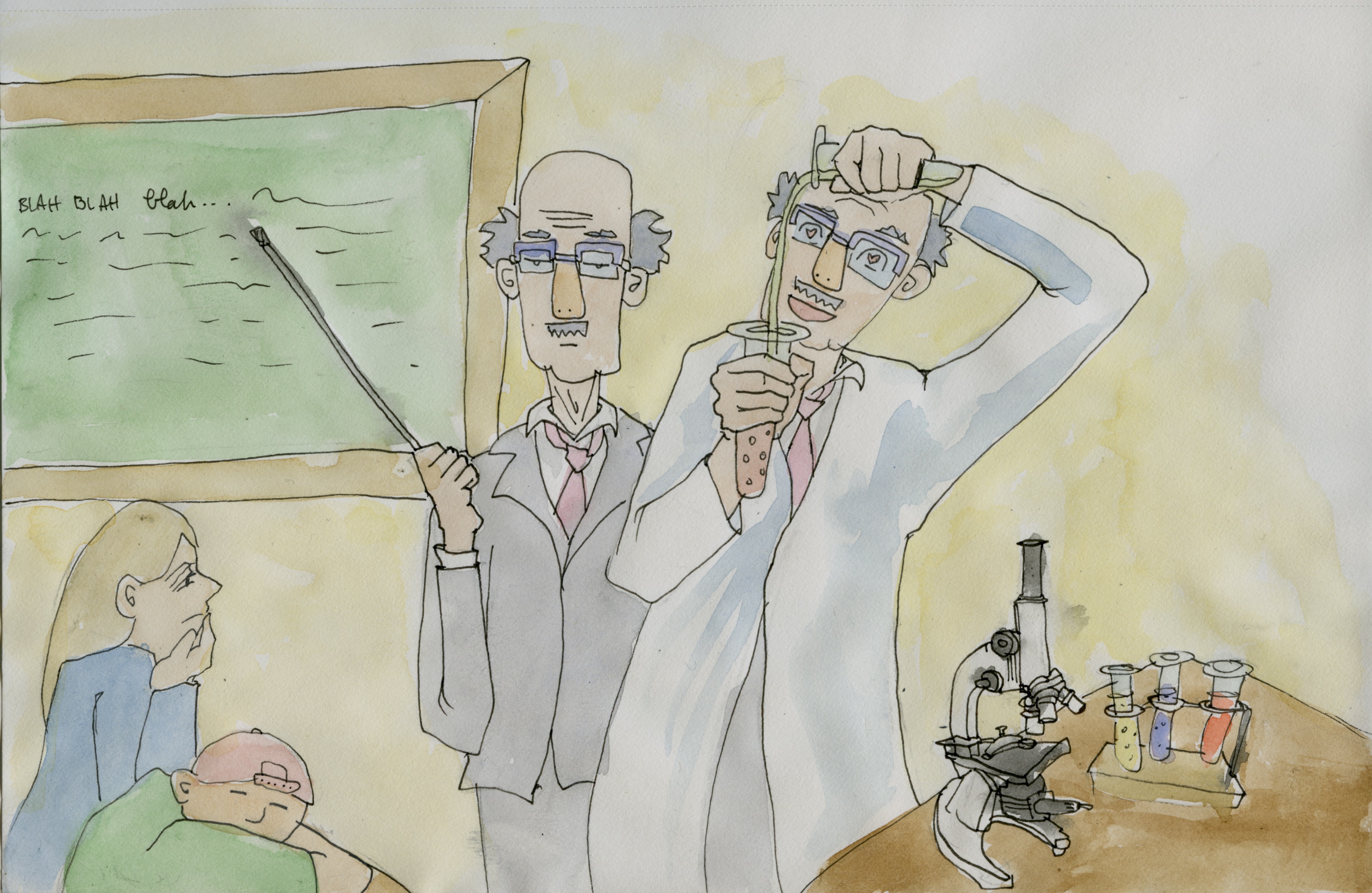Research gets in the way of professors’ teaching

By Kevin Mosby
Feb. 17, 2011 11:43 p.m.
One day last week, I went to three different classes in which each professor relayed the same exact message: “Read my book.” It was then that I questioned whether some professors value their responsibilities as researchers more than as teachers.
Currently, UCLA hires researchers who do not teach and professors who most often teach and conduct research. But with the exception of some lecturers, very few professors are hired only to teach. Although the “teacher-researchers” boost UCLA’s reputation as a leading research university, these professors who instruct introductory courses can practice inefficient teaching.
For this reason, lower-division courses should be taught by more instructors who do not do research. Teachers of introductory courses need to devote extra time to their students to clarify concepts that are new to undergraduates, but research quickly fills up professors’ already busy schedules. In effect, teachers who also perform extensive research are likely to have less time and energy to devote to this kind of instruction.
A recent study by New York University education sociologist Richard Arum supports this claim. Arum has found that there is limited learning in the first two years of college, resulting in decreased critical thinking and reasoning skills. Arum’s study, which was covered in a recent NPR story, specifies that research-focused professors are a possible cause for the decrease in undergraduate learning.
In addition to taking time away from students, teaching research in introductory courses creates other problems: professors may discuss their research in class, even though it is often not relevant to the course material.
Rather than teach core concepts of introductory courses, some professors are spending too much time explaining their research. This way of teaching hinders student learning in lower-division courses.
Extensively using research to teach lower-division classes simply is not necessary. Such instruction creates more work for students who, usually, must additionally learn all of the material they should have been taught by their professors.
Many students are having to fend for themselves in already difficult introductory courses. Some are even forced to teach themselves an entire course to make up for the ineffective teaching of their busy researching professors.
One way to get more non-researching teachers into lower-division positions is to increase the number of tenured lecturers who are solely committed to teaching. This would allow professors whose priority is instruction to teach many of these introductory courses.
But many professors are wary of raising the number of non-researching professors. Abigail Saguy, a sociology professor at UCLA, said professors who do not want to do research should go to other universities. She also said that having professors who teach the research they have conducted is more valuable to student learning.
Saguy has a point. If I were a third- or fourth-year nearing graduation, I would certainly not mind the emphasis on research. Upper-division courses are much more specific and, for the most part, attract students who already know much about the subject matter. Research is a valuable and necessary teaching tool in upper-division classes.
But as a freshman in only introductory courses, I am not convinced that professors of lower-division courses should be so quick to use their specific and esoteric research to teach rudimentary concepts in their fields.
By weeding out professors who are chiefly concerned with their own research, instruction would drastically improve. Allowing more instruction-only professors to teach introductory lower-division courses would prevent busy researchers from ineffectively teaching students who are new to college.
So before you buy your professor’s lengthy new book on existentialism in Henry David Thoreau’s “Walden,” make sure you get a grasp on the basics of introductory philosophy first.
Can professors balance teaching with research? E-mail Mosby at [email protected]. Send general comments to [email protected].

